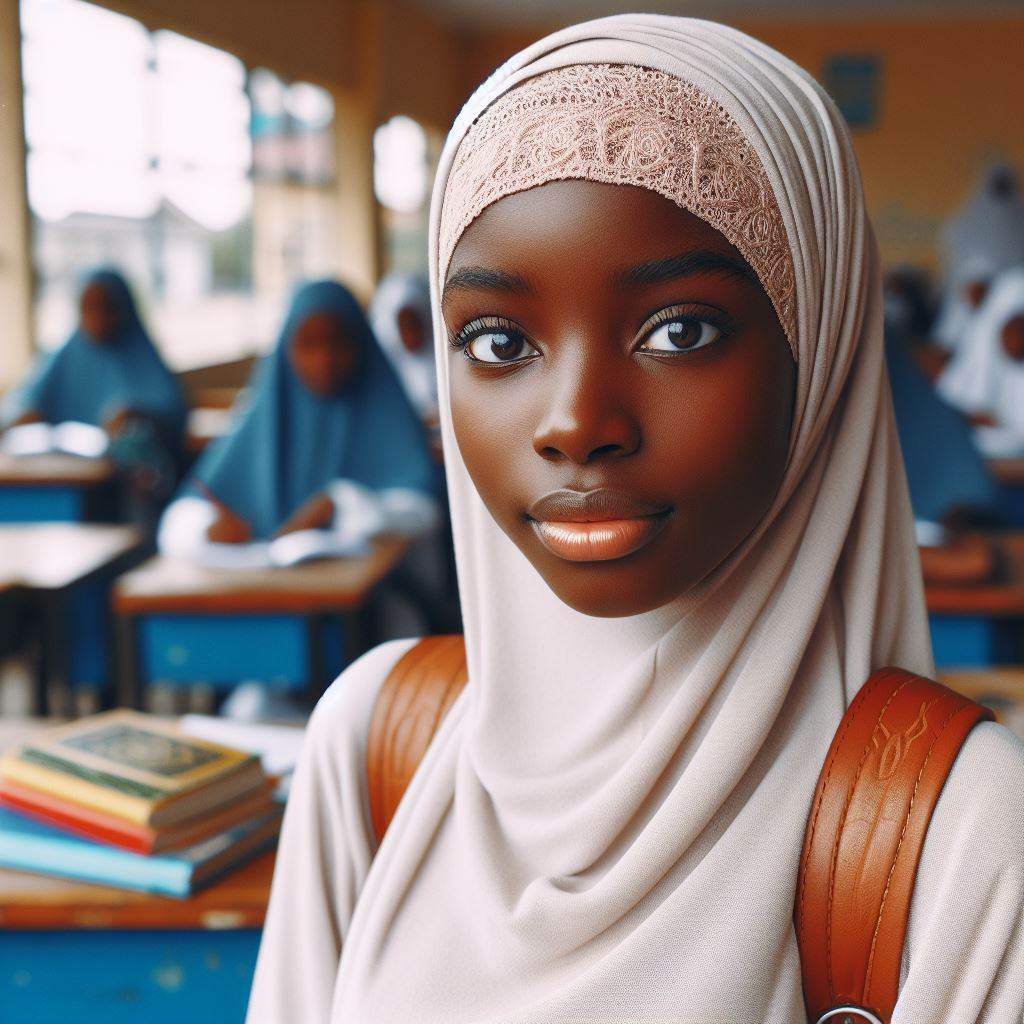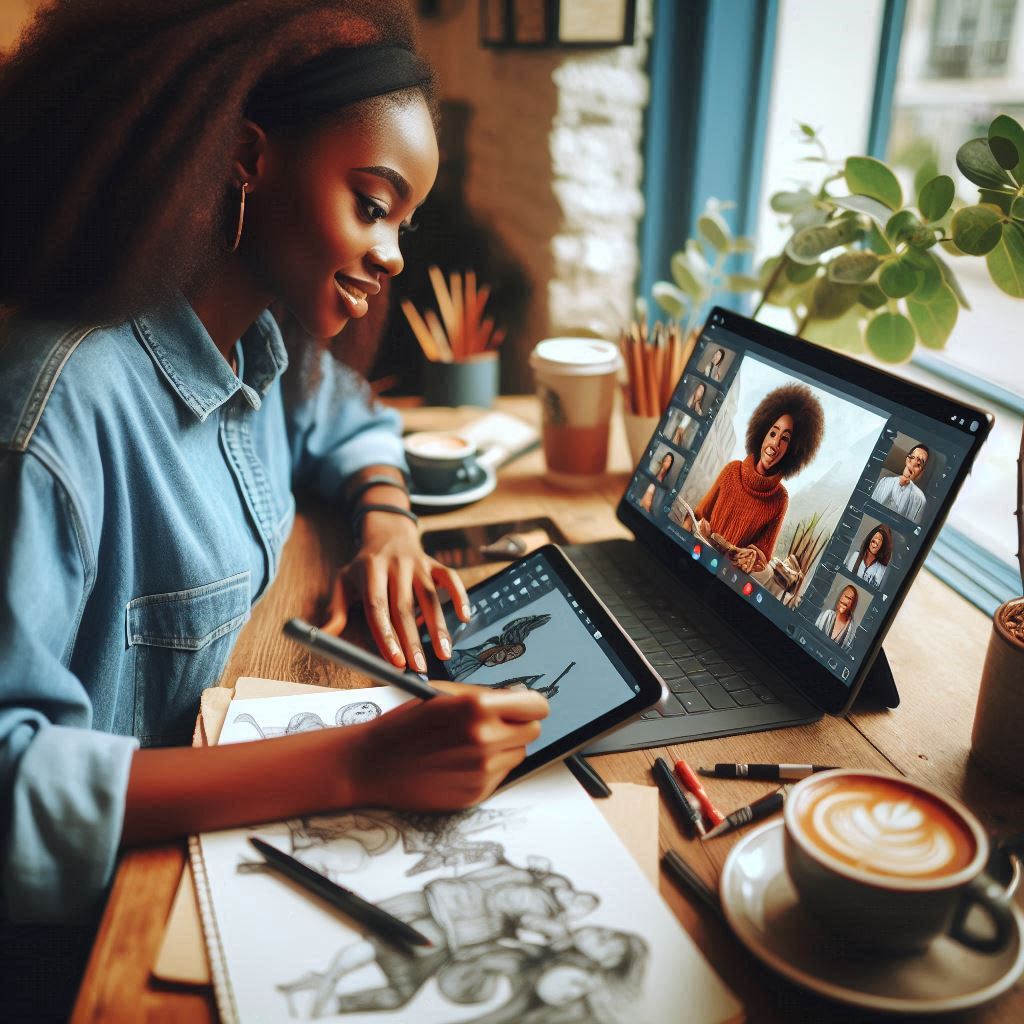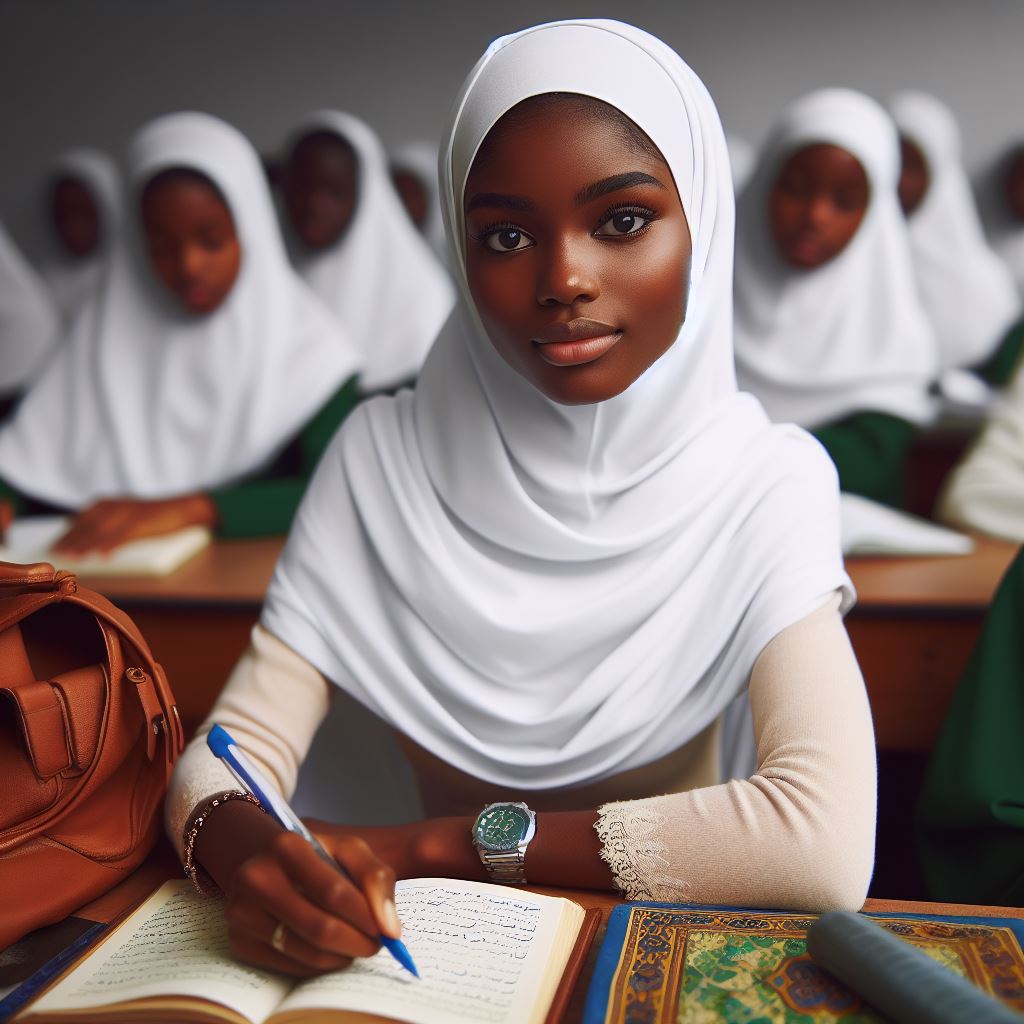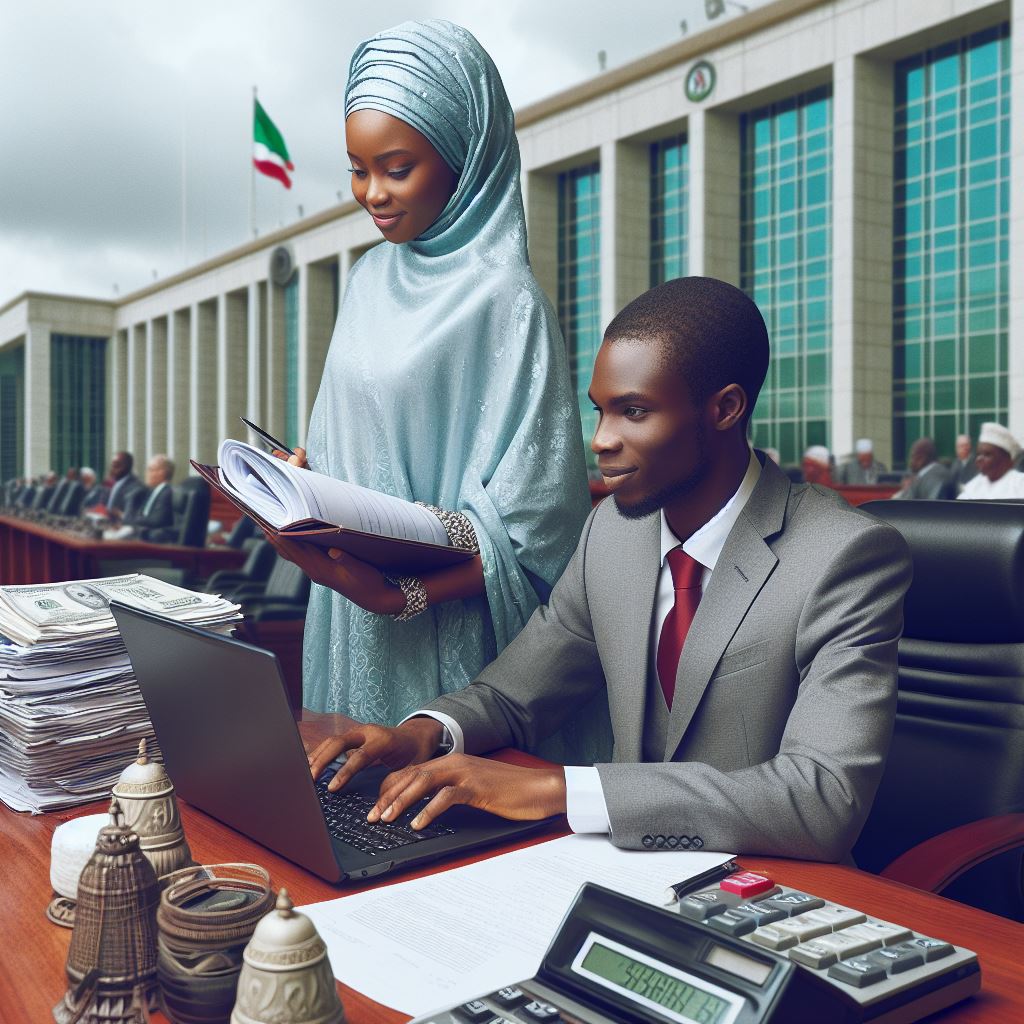Introduction
Welcome to an enlightening journey as we engage in an in-depth interview with some of Nigeria’s leading art educators.
Art education holds a special place in Nigeria, serving as a gateway to cultural expression and creative exploration.
Throughout this interview, we’ll delve into the multifaceted landscape of art education in Nigeria, exploring its significance, challenges, and transformative potential.
Our esteemed educators will share their experiences, insights, and innovative approaches to teaching art in Nigeria’s dynamic educational landscape.
Join us as we uncover the strategies, philosophies, and aspirations that drive these educators to inspire the next generation of artists and cultural custodians in Nigeria.
Through their voices, we’ll gain a deeper understanding of the profound impact of art education on individuals, communities, and society as a whole.
Get ready to be inspired and enlightened as we embark on this enlightening exploration into the world of Nigerian art education.
Background of the Nigerian Art Educators
Introducing the Esteemed Art Educators
In our upcoming interview, we have the privilege of speaking with three distinguished Nigerian art educators:
- Professor Adebayo Adejare: With over three decades of experience in art education, Professor Adejare is renowned for his innovative teaching methods and dedication to nurturing young artists. He has authored several textbooks on art education and curated numerous exhibitions showcasing the work of emerging Nigerian artists.
- Dr. Chioma Okonkwo: Dr. Okonkwo is a trailblazer in the field of art education, specializing in community-based art projects that promote social change and cultural preservation. She has received accolades for her work, including the prestigious Nigerian National Order of Merit Award for her contributions to arts education.
- Mr. Ibrahim Lawal: As a leading advocate for arts integration in Nigerian schools, Mr. Lawal has played a pivotal role in shaping art education policies and curriculum development. His commitment to fostering creativity and critical thinking skills among students has earned him recognition from both local and international educational organizations.
Highlighting Their Contributions to Art Education
Each of these esteemed educators has made significant contributions to the field of art education in Nigeria.
Professor Adejare’s innovative teaching methods have inspired generations of artists, while Dr. Okonkwo’s community-based projects have empowered marginalized communities through art.
Mr. Lawal’s advocacy efforts have led to tangible improvements in art education policies and practices across the country.
Awards and Recognition
In recognition of their outstanding contributions, Professor Adejare has been honored with the Nigerian National Order of Merit Award, the highest academic honor in the country.
Dr. Okonkwo’s work has been recognized with the Nigerian National Order of Merit Award for her pioneering efforts in community-based art education.
Mr. Lawal has received accolades from the Nigerian Educational Research and Development Council for his advocacy work in promoting arts integration in schools.
As we prepare to delve into our interview with these esteemed educators, we cannot help but be inspired by their dedication, innovation, and passion for art education in Nigeria.
Their collective expertise and leadership have played a pivotal role in shaping the future of art education in the country, and we look forward to gaining deeper insights into their work and vision for the field.
Read: Developing Critical Thinking in Language Arts
Interview Questions
List out the questions that will be asked during the interview
- What inspired your journey into art education, and how has it shaped your career path?
- Can you elaborate on your teaching philosophy and how it influences your approach to education?
- What challenges have you encountered in the field of art education, and how have you navigated them?
- How do you foster creativity and critical thinking skills in your students through art education?
- In your opinion, what role does art education play in preserving Nigeria’s cultural heritage?
- What advice do you have for aspiring art educators facing obstacles in pursuing their career?
- How do you integrate technology and contemporary practices into traditional art education methods?
- Can you share a memorable teaching moment or project that has impacted you and your students?
- How do you address inclusivity and diversity in your art education curriculum and teaching practices?
- Where do you see the future of art education in Nigeria, and what steps can be taken to achieve that vision?
Questions about their teaching philosophy, challenges faced in the field, and their advice for aspiring art educators
Their teaching philosophy serves as a guiding light, shaping the minds of future artists.
Understanding their approach provides insight into the values they instill in their students.
Challenges are inevitable, but their resilience and ingenuity pave the way for transformative solutions.
Learning about the obstacles they faced offers valuable lessons for others in the field.
Advice for aspiring educators is crucial, as it provides a roadmap through the labyrinth of challenges.
Ensure the questions are well-thought-out and engaging
Creativity thrives in their classrooms, nurturing a generation of innovative thinkers and problem-solvers.
Their stories and experiences enrich the narrative, making the interview both informative and engaging.
By embracing technology, they bridge the gap between tradition and modernity, enriching the learning experience.
Moments of inspiration and revelation leave an indelible mark on both teachers and students.
Diversity is celebrated, fostering an inclusive environment where every voice is heard and valued.
With a forward-looking gaze, they envision a future where art education flourishes, empowered by innovation and inclusivity.
These well-thought-out and engaging questions ensure a comprehensive and insightful interview that highlights the contributions and challenges of prominent Nigerian art educators.
Read: Student Experiences: Life in Communication Arts
Interview with the art educators
Present the Responses of the Nigerian Art Educators to the Interview Questions
In a recent interview, Nigerian art educators shared their insights on art education.
Each educator expressed their dedication to nurturing young talents.
“Art is life,” stated Dr. Amina Adeniyi, a renowned art professor at the University of Lagos.
She emphasized the importance of integrating art into the education system.
“It cultivates creativity and critical thinking,” she added passionately.
Olu Jacobs, a senior art teacher at a Lagos high school, echoed similar sentiments.
“Teaching art is about more than techniques,” he said.
Jacobs believes that art education fosters emotional intelligence and resilience.
He shared an anecdote about a student who overcame personal struggles through painting.
“Art gave him a voice,” Jacobs remarked with a smile.
Esther Okonkwo, an art lecturer at Obafemi Awolowo University, discussed the role of art in cultural preservation.
“Art education helps students appreciate their heritage,” she noted.
Okonkwo described a project where students recreated traditional Nigerian motifs.
“They felt a profound connection to their roots,” she recalled.
Quotes and Anecdotes from the Educators to Provide Insight into Their Perspectives
The educators highlighted the challenges they face in promoting art education.
“Funding is a major issue,” lamented Dr.
Adebayo Adeyemi, an art professor at the University of Nigeria, Nsukka.
He pointed out the lack of resources and materials.
“We often rely on donations and personal funds,” he admitted.
Despite these obstacles, Adeyemi remains committed to his mission.
“Our students’ growth keeps us going,” he said with determination.
Olu Jacobs mentioned another challenge: societal attitudes towards art.
“Many parents discourage their children from studying art,” he explained.
Jacobs shared a story of a talented student whose parents opposed her artistic ambitions.
“We had to convince them of her potential,” he said.
The student later won a national art competition, proving her parents wrong.
“It was a triumph for all of us,” Jacobs declared proudly.
Dr. Amina Adeniyi emphasized the need for continuous professional development for art educators.
“We must stay updated with global trends,” she asserted.
Adeniyi attended international workshops to bring new techniques back to her students.
“Exposure to diverse practices enriches our teaching,” she said enthusiastically.
Showcase Their Passion for Art Education and Commitment to Nurturing Young Talents
Esther Okonkwo highlighted the impact of technology on art education.
“Digital tools have revolutionized our approach,” she explained.
Okonkwo integrated digital art platforms into her curriculum, enhancing student engagement.
“Students are excited to explore new mediums,” she observed.
She believes technology bridges gaps in traditional art education.
The interview concluded with a reflection on the future of art education in Nigeria.
“We need government support,” urged Dr. Adebayo Adeyemi.
He called for increased funding and policy changes.
“Art education is crucial for our nation’s development,” he argued.
Olu Jacobs added that community involvement is essential.
“Everyone has a role in nurturing young artists,” he said.
These educators’ passion for art and commitment to their students is evident.
They overcome numerous challenges to ensure art remains a vital part of education.
Their stories inspire hope for the future of art education in Nigeria.
“We are shaping the next generation of artists,” declared Dr.
Amina Adeniyi with pride.
Read: Communication Arts: Balancing Theory and Practice
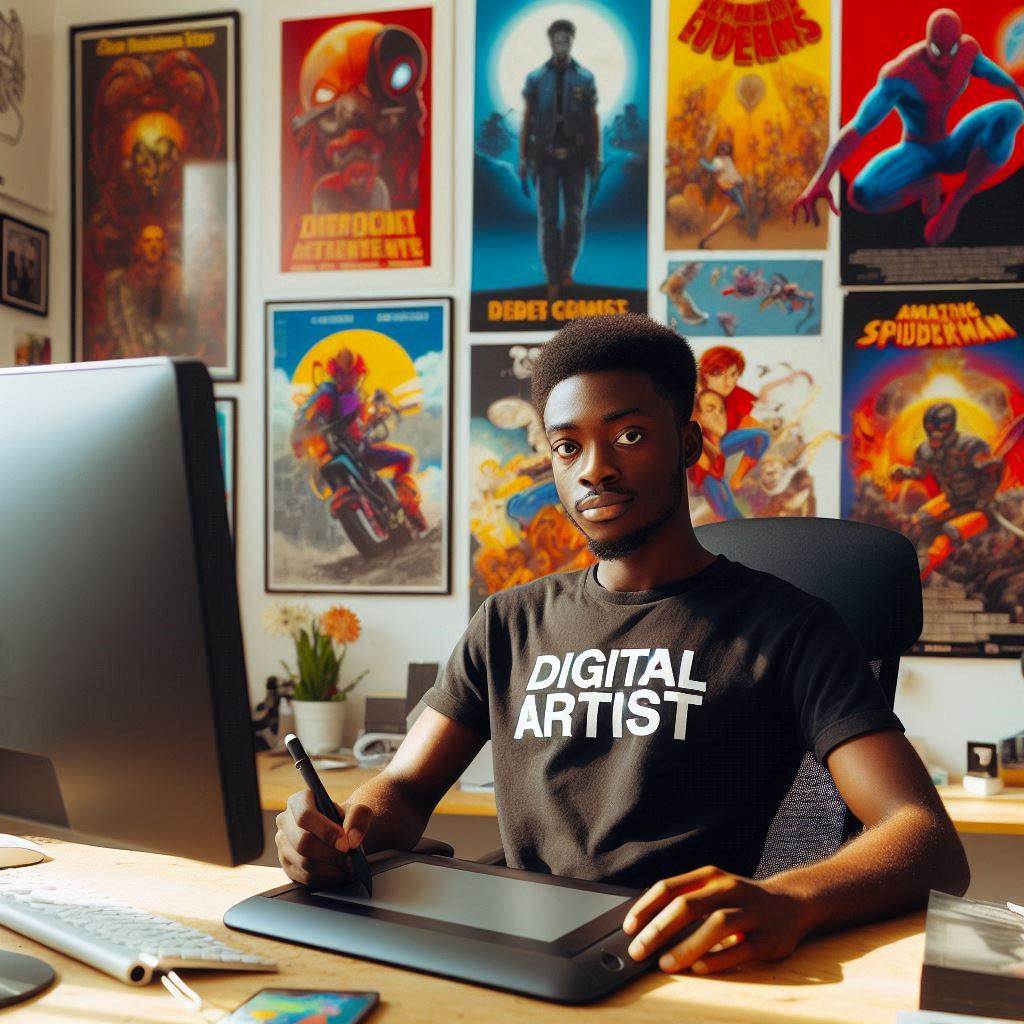
Key Takeaways from the Interview
Summary of Main Points
- The interview focused on the challenges and opportunities in Nigerian art education.
- Prominent art educators highlighted the importance of creativity and innovation in the industry.
- They discussed the need for more support and recognition for art education in Nigeria.
- The educators shared their experiences of empowering young artists and nurturing talent in the country.
- Overall, the conversation highlighted the passion and dedication of these educators to transform the art landscape in Nigeria.
Key Insights, Advice, and Experiences
- The art educators emphasized the value of art education for personal and societal development.
- They shared practical tips on how to cultivate a thriving art community in Nigeria.
- The importance of mentorship and collaboration was a recurring theme in the discussion.
- The educators encouraged aspiring artists to embrace experimentation and continuous learning.
- Through their experiences, they emphasized the role of perseverance and resilience in the art industry.
Significance of Art Education in Nigeria
- Art education plays a crucial role in nurturing creativity, critical thinking, and cultural appreciation.
- The educators stressed the need for a comprehensive art curriculum in Nigerian schools.
- They highlighted how art education can bridge cultural divides and promote social cohesion.
- The role of art educators in shaping the future of the industry cannot be overstated.
- Their dedication and passion for fostering artistic talent are essential for the continued growth of the art scene in Nigeria.
Generally, the interview with prominent Nigerian art educators provided valuable insights into the challenges and opportunities in the art education sector.
Their experiences and advice underscored the importance of creativity, innovation, and mentorship in shaping the future of the industry.
As advocates for art education, these educators play a vital role in nurturing talent, fostering community engagement, and promoting cultural appreciation in Nigeria.
Their dedication and commitment to empowering young artists are essential for the growth and development of the art scene in the country.
Read: Introduction to African and Asian Studies in Nigeria
Impact of Art Education on Nigerian Society
The Impact of Art Education on Nigerian Society
Art education profoundly impacts Nigerian society. It fosters creativity, critical thinking, and cultural appreciation among students.
Dr. Amina Adeniyi, an art professor at the University of Lagos, noted, “Art education is transformative.” She believes it empowers individuals and communities. Olu Jacobs, a high school art teacher, added, “Art shapes our perspectives and nurtures emotional intelligence.”
How Art Education Can Promote Creativity, Cultural Heritage, and Critical Thinking Skills
Art education promotes creativity by encouraging innovative thinking.
“It challenges students to think outside the box,” said Esther Okonkwo, an art lecturer at Obafemi Awolowo University.
She shared an example of a student who developed a unique art style.
“His creativity blossomed through exposure to diverse art forms,” she recalled.
Cultural heritage preservation is another crucial aspect.
“Art education connects students to their roots,” Okonkwo emphasized.
She described a project where students recreated traditional Nigerian motifs.
“They developed a deep appreciation for their culture,” she noted.
Dr. Adebayo Adeyemi, an art professor at the University of Nigeria, Nsukka, agreed.
“Art education keeps our traditions alive,” he stated.
Critical thinking skills are also enhanced through art education.
“Analyzing and creating art requires complex problem-solving,” explained Dr. Adeniyi.
She believes art challenges students to question and explore different perspectives.
Olu Jacobs shared a story about a student who improved his analytical skills through sculpture.
“Art made him a better thinker,” Jacobs observed.
The Importance of Investing in Art Education for Societal Development
Investing in art education is crucial for societal development.
“Art fosters a well-rounded education,” asserted Dr. Adeyemi.
He called for increased funding and support for art programs.
“Resources are needed to nurture young talents,” he emphasized.
Esther Okonkwo highlighted the role of technology in modern art education.
“Digital tools can enhance learning experiences,” she said.
Okonkwo integrated digital platforms into her teaching, making art more accessible and engaging.
Olu Jacobs stressed the importance of community involvement.
“Parents and local leaders should support art education,” he urged.
Jacobs shared an inspiring story of a community art project.
“It united people and showcased local talents,” he recalled. Dr. Adeniyi added that art education can drive economic growth.
“Creative industries contribute significantly to our economy,” she explained.
She believes investing in art education will yield long-term benefits.
Therefore, art education has a transformative impact on Nigerian society.
It promotes creativity, preserves cultural heritage, and enhances critical thinking.
Investing in art education is essential for societal development.
“We are shaping the future of our nation through art,” declared Dr.
Amina Adeniyi.
These educators’ commitment to art education highlights its importance in building a vibrant, culturally rich, and intellectually robust society.
Conclusion
Art education in Nigeria is crucial for fostering creativity, critical thinking, and preserving cultural heritage.
The insights from prominent Nigerian art educators highlight their dedication and passion.
These educators tirelessly nurture young talents despite facing numerous challenges.
“Art is a language everyone can speak,” stated Dr. Amina Adeniyi, emphasizing art’s universal appeal.
Olu Jacobs, a high school art teacher, shared, “Teaching art is about molding minds and building character.
” His dedication to his students is evident in his approach.
Jacobs’s anecdote about a student who found his voice through painting showcases art’s transformative power.
Esther Okonkwo, an art lecturer, noted, “Art education helps students appreciate and maintain their heritage.
” Her project involving traditional Nigerian motifs connected students to their roots.
This deepened their cultural appreciation and pride.
Supporting art educators also strengthens our cultural and intellectual heritage.
These dedicated professionals ensure art remains a vital part of Nigeria’s educational landscape.
Thank you for valuing their contributions to our society.

